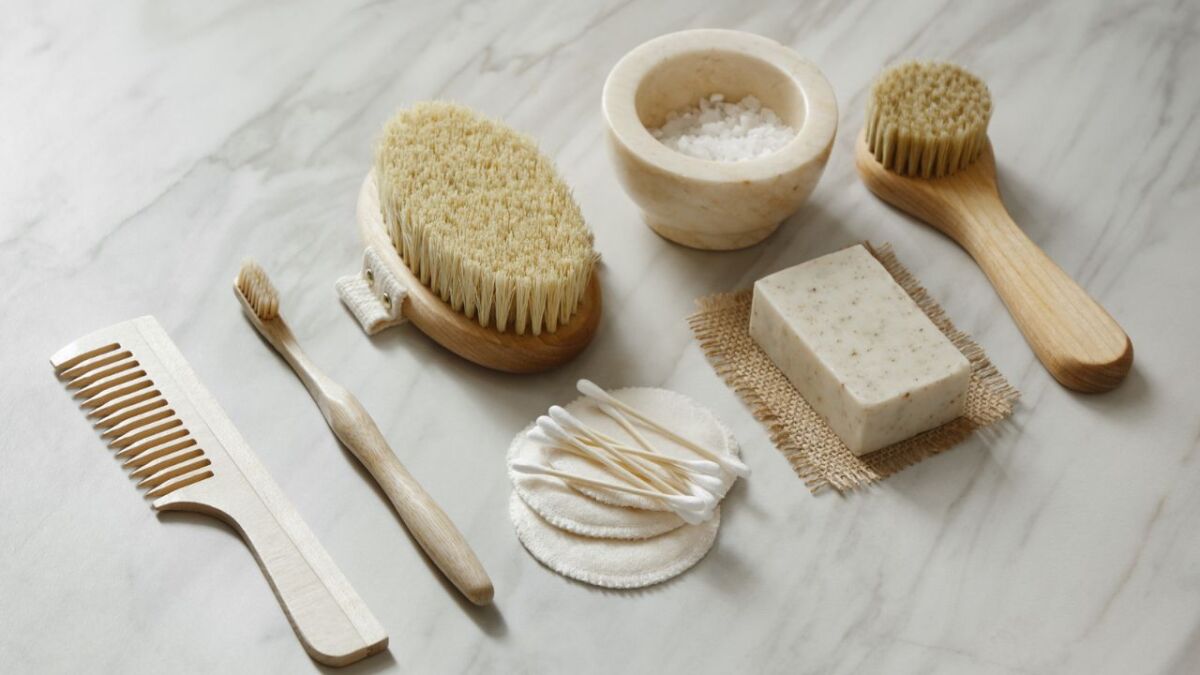
Tips and tricks for outdoor hygiene to stay healthy and clean in the wilderness
👉 The key facts from this guide
- Use biodegradable soap for personal hygiene in the wilderness.
- Wet wipes and dry shampoo are useful helpers for quick cleanups in between.
- Hand sanitizer is essential, especially before eating or after using the toilet.
- Dental hygiene is also important on the go - don't forget your toothbrush and toothpaste.
- Pay attention to proper use of toilet paper, dispose of trash properly and never in nature.
- Regular changes of clothes and using unscented deodorant help minimize sweat and odor.
Do you know that?
Waking up in the wilderness, fresh morning air, the scent of pine needles - a dream!
But wait a minute, bad breath and messy hair.
And no bathroom in sight.
Here comes our problem into play: The hygiene.
But don't worry, there are solutions!
And you will learn about it in this guide.
Let's find out together how to stay fresh and clean in the wilderness without harming nature.
Ready? Let's go.
Importance of hygiene in the outdoor area
Have you ever heard of the old saying "A healthy body is a healthy mind"?
It's the same with hygiene in the wilderness.
She plays a central role in staying healthy and fit while enjoying our favorite activity - being outside, pure nature.
It's not just about smelling good or having clean hair.
No, good hygiene is essential to ward off diseases and maintain your performance.
And let's be honest: Nobody wants to go camping with a smelly partner, right?
So let's roll up our sleeves together and get a handle on hygiene.
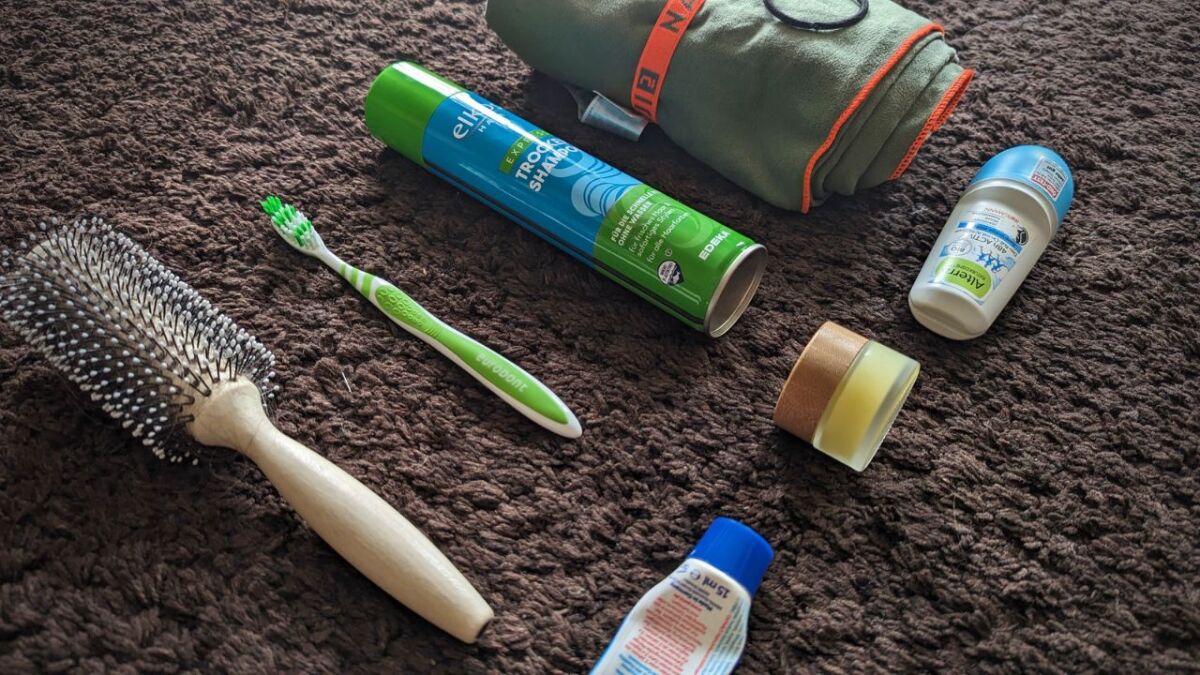
Hygiene was not always important to me, until…
I admit it: As an enthusiastic outdoor enthusiast who often finds his second home in the vast wilderness, hygiene was not always my first thought.
I still remember my first hikes and camping trips.
With shining eyes, I spent days and nights under the stars, but often forgot that my body needs care.
Over time and with many outdoor adventures under my belt, I have learned how important it is to take good care of my body in nature as well.
Because your body is your most essential tool.
Maintaining Personal Hygiene Outdoors - My Essential Tips
Use of natural water sources and biodegradable soap
Do you remember the last time you stood by a stream and felt the cool freshness of the water on your skin?
To me, it's like a bathroom in the great outdoors!
I like to use natural water sources to wash myself.
But hey, we are guests of nature here, that's why I always use biodegradable soap (ideally pure soap). A small step for us, a big step for preserving our wilderness.
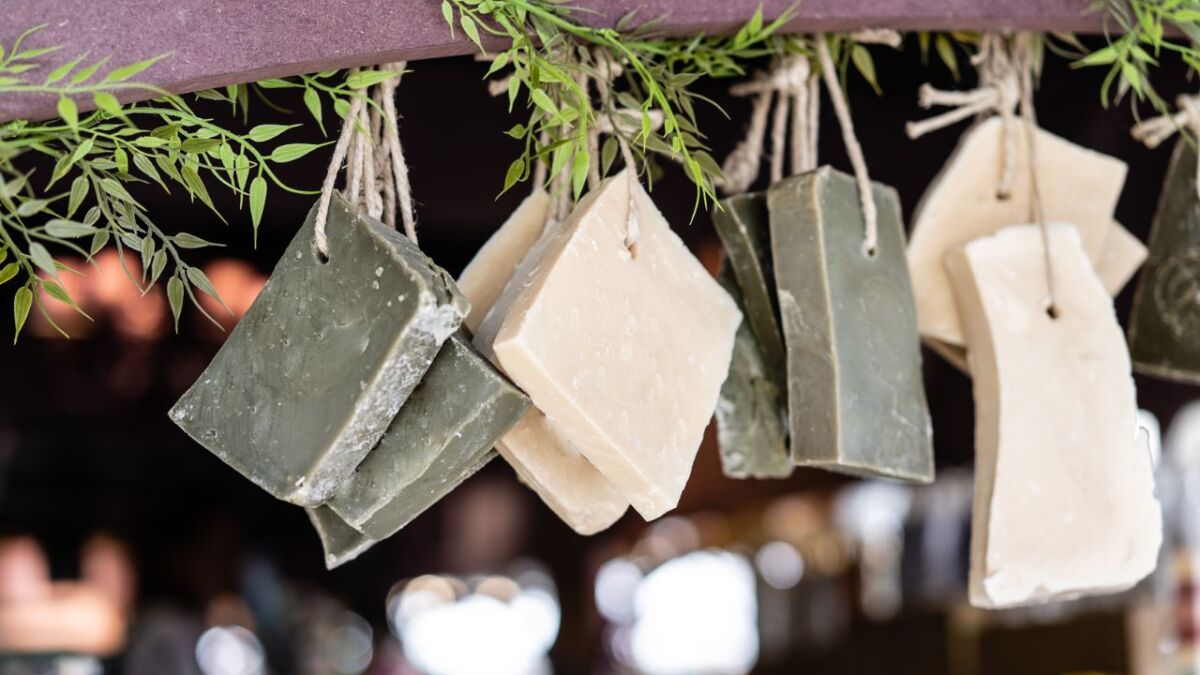
Use of wet wipes
Wet wipes - that doesn't sound like wilderness at first, does it?
But believe me, they are real all-round talents. I use them (I buy these) for quick cleaning in between.
And remember: Everything we bring into nature, we also take out again. Responsible disposal is key.
Using Dry Shampoo
The visit to the hairdresser is out in the wilderness. However, with dry shampoo, I can keep my hair fresh on the go.
It's like having my personal hairdresser in my pocket. And the best part? It doesn't need water!
Use of Hand Sanitizers
Without water and soap, it becomes difficult to keep your hands clean, right?
Not with hand sanitizer!
It's like a personal bodyguard against bacteria, always ready to fulfill its duty. And it's especially important before eating or after using the toilet.
Importance of dental care on the go
A radiant smile is the most beautiful accessory you can wear in the wilderness.
I never forget my toothbrush and toothpaste. There are practical, small travel sets that take up hardly any space.
Find my ultimate guide to brushing your teeth in the wilderness here.
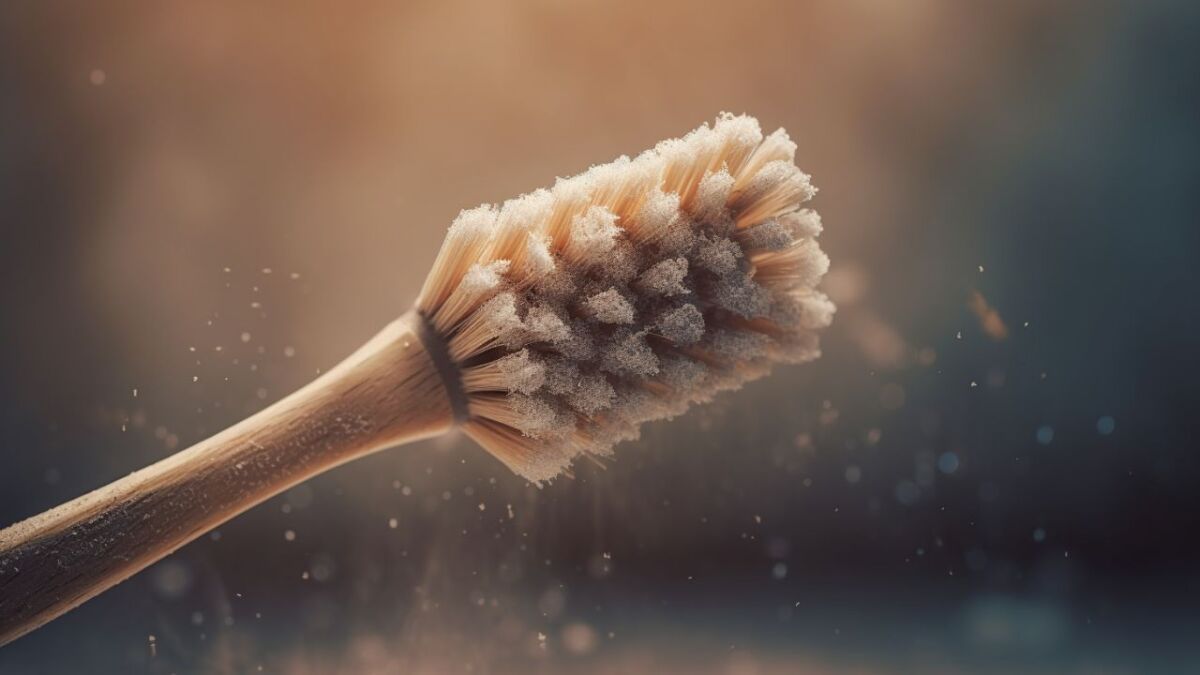
Considerations for Portable Camping Showers
When going on longer trips or camping, a portable camping shower is worth considering.
It's like a small wellness oasis in the middle of the wilderness. I take it with me when I know there is enough water available.
Proper Use of Toilet Paper
Toilet paper is a must, but it should also be disposed of properly. Like a good scout, I leave no trash behind.
Read here how to go to the toilet correctly and sustainably in the forest.
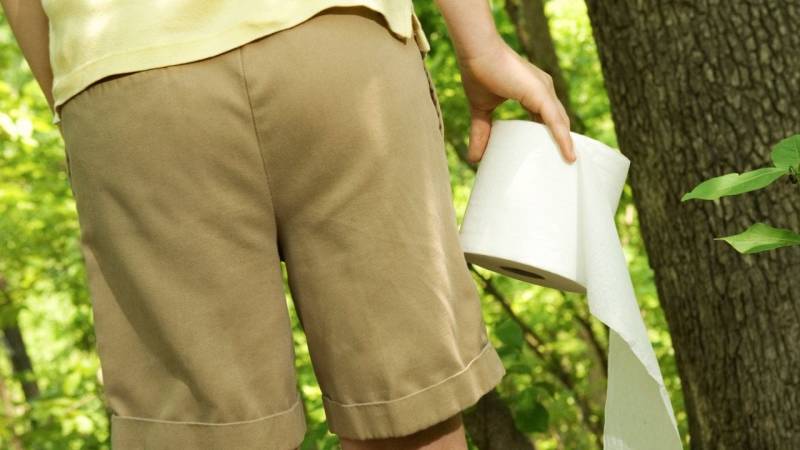
Bathroom Break
I think men have little to do with the small business.
Ideally, no drop should end up in the underwear of a man or woman.
A practical way for women to minimize toilet paper usage is by using a so-called "Pee Rags" (also known as Urine Cloth or Pee Cloth).
This is a cotton cloth that can be used for smaller needs like toilet paper.
On the go, it can occasionally be rinsed with water and cleaned in the washing machine at home.
Here is an opinion from a buyer:
Article already used outdoors for several days - Hanging on the bag, dries quickly - No smell - Handle for easy handling.
Necessity of changing clothes
Regularly changing clothes helps minimize sweat and odor.
It feels like a fresh start to the day.
Control body odor with unscented deodorant
With unscented deodorant, I keep body odor at bay without disturbing animals or bothering fellow human beings.
It's like an invisible shield against odors.
Hygiene for Meals and Beverages
Hygiene is also important when it comes to meals and drinks. I wash or disinfect my hands before eating or drinking or preparing food for a group.
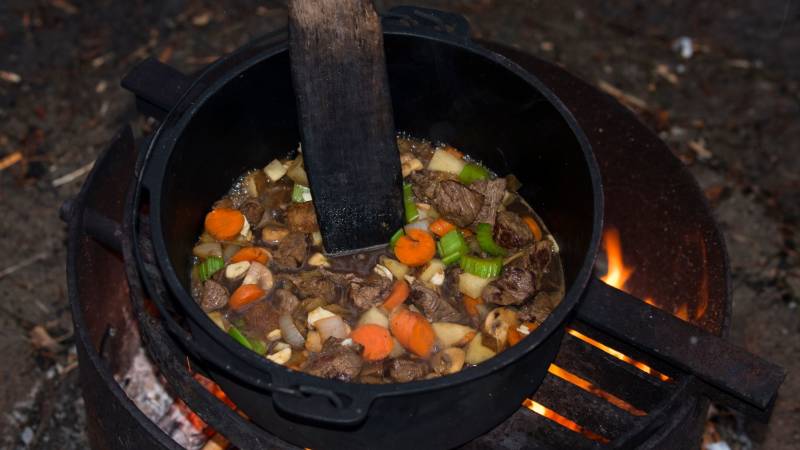
Must-have Outdoor Hygiene Equipment
Okay, so you're ready to venture into the wilderness?
Then let's pack your backpack!
Here are my must-haves for outdoor hygiene.
They take up little space, but are great helpers in nature.
My list of the 9 most important hygiene items for the outdoors
| Hygiene articles | Description |
|---|---|
| Toilet paper and tissues | Your best friend in the wilderness. Not only for your nose, but also for other necessities. |
| Toothbrush and toothpaste | So, your smile can shine in the wilderness. Remember the small travel sets! |
| Comb or brush | For the perfect "I-just-came-out-of-the-wilderness" look. And no, that's not a contradiction! |
| Soap for washing | Whether it's bar soap or another biodegradable soap - it helps you stay fresh. |
| Washcloth | For a quick wash in between. |
| A small towel | After washing, you also need to dry off. Small microfiber towels are lightweight and dry quickly. |
| Nail scissors and tweezers | Yes, even in the wilderness you have to take care of your nails. And the tweezers? They're great for removing splinters or ticks. |
| Cotton swabs | For ear care. |
| Women's hygiene articles | For the ladies in the wilderness. Always be prepared. |
This is your basic outdoor hygiene kit. And now, off to the wilderness, my friend!
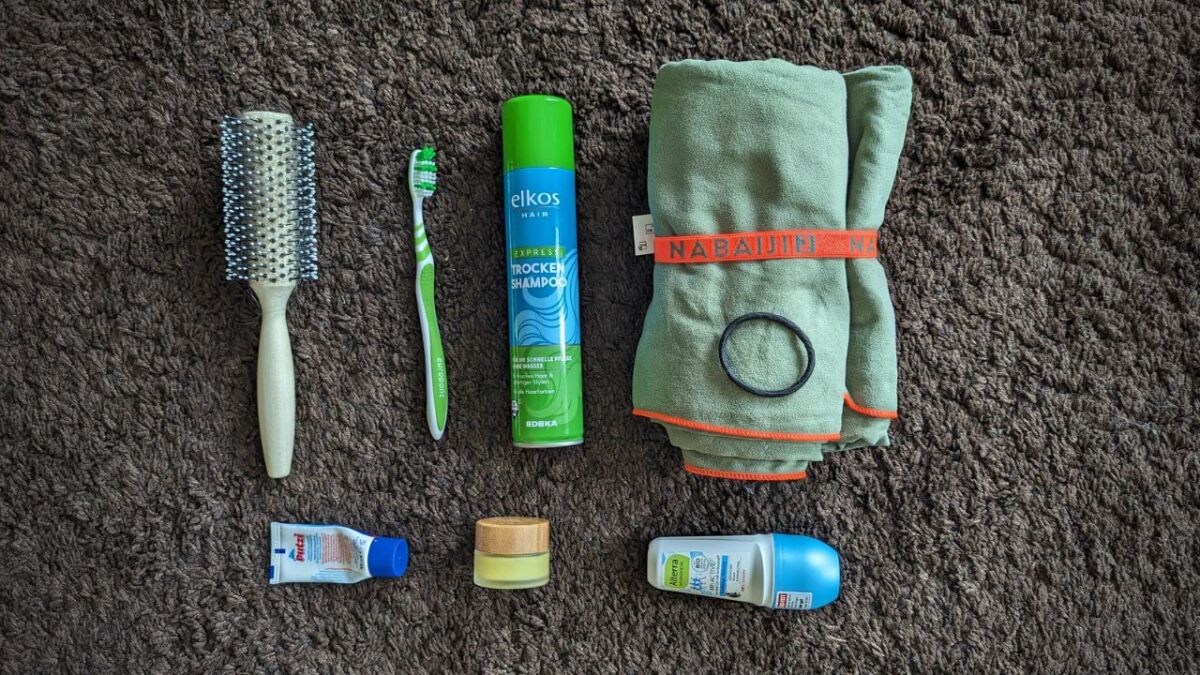
Tip: When I work a lot with my hands, I often use a cream. This way, my hands can regenerate better overnight.
Additional considerations for outdoor hygiene and further recommendations
Sun Protection
Never forget, you are under the open sky!
A sunburn can quickly spoil one's enjoyment of nature.
Therefore, sunscreen always belongs in the backpack.
And don't forget to apply them regularly, especially when you're near water or at high altitude.
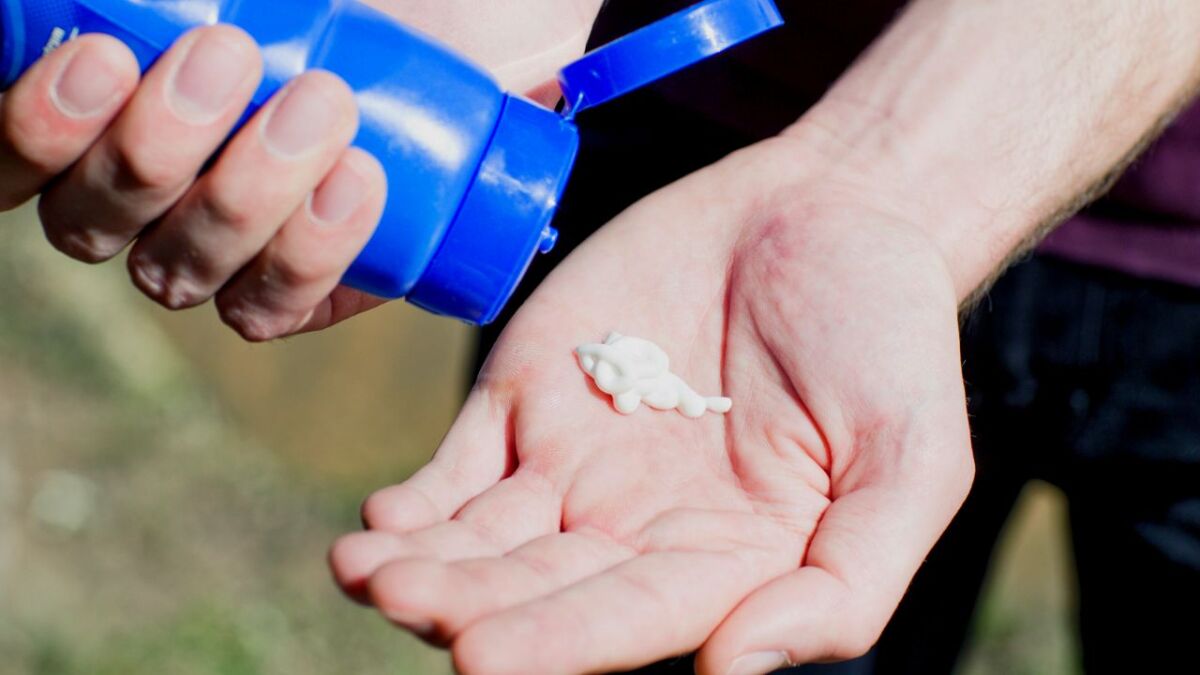
Insect Protection
It is nothing new that nature also harbors insects.
Mosquitoes, flies, ticks - they all want their share of you.
A good insect repellent provides relief here. It keeps the pests away and allows you to enjoy your outdoor adventure in peace.
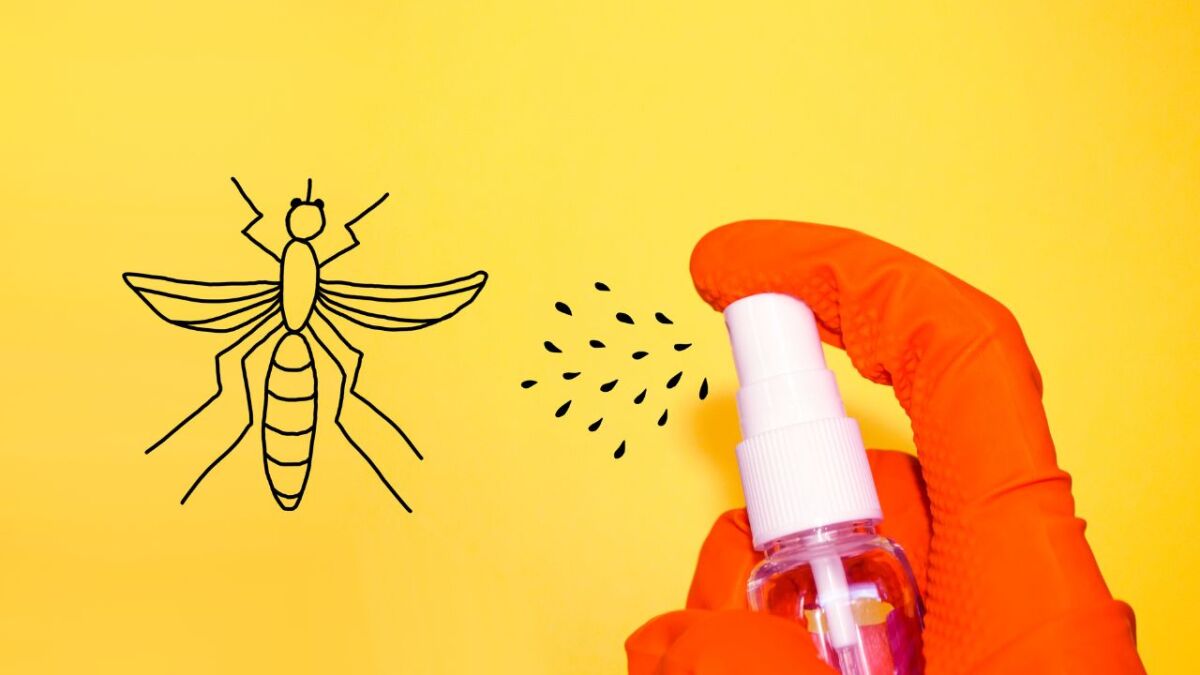
Lip Care
Wind, sun, cold - your lips can easily dry out in the wilderness.
A lip balm is therefore essential. Because who wants to be out in the wilderness with chapped lips?
First Aid Kit
Small accidents happen quickly, especially when you are out in nature.
An emergency kit should always be included in your luggage. It can be small and compact, but should contain the essentials.
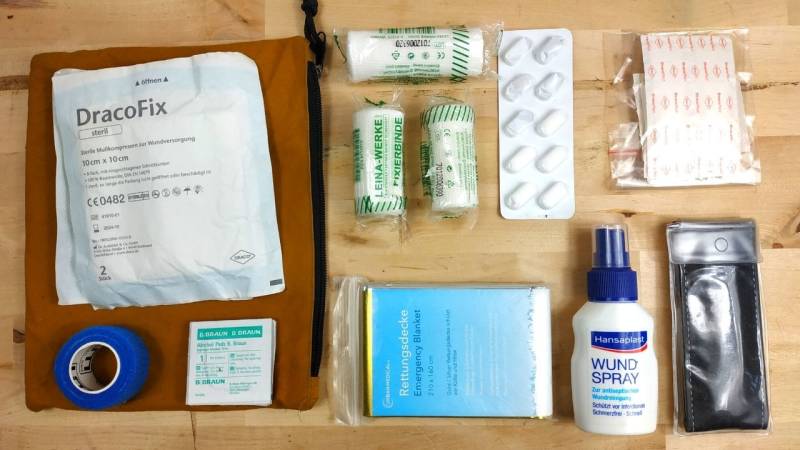
Water Treatment
Water is life, especially in the wilderness. But not every stream is drinkable.
Therefore, always have a means of water treatment with you, be it a water filter or water purification tablets.
Read here everything about finding, collecting and purifying water.
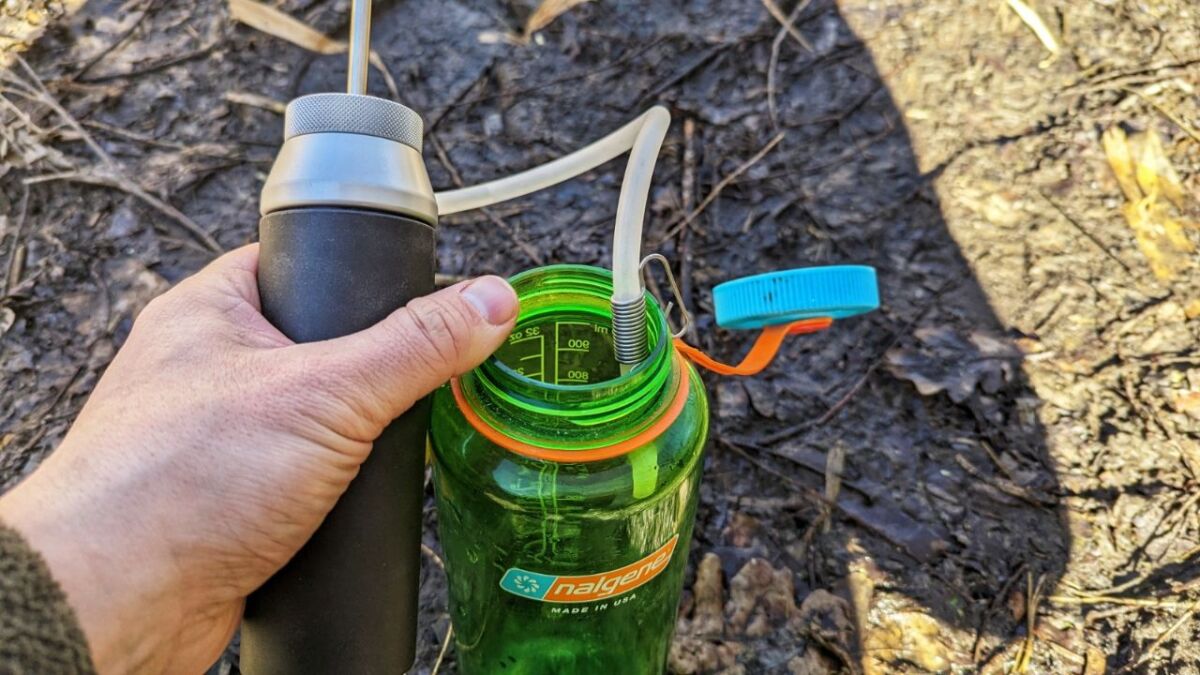
 Foot Care
Foot Care
Long hikes can strain your feet.
Blisters, pressure points, calluses - all of these you want to avoid.
Special hiking socks, blister plasters, and foot powder can work wonders here.
Remember: In the wilderness, your feet are your number one means of transportation!
Therefore, read: How to prevent blisters while hiking and how to treat them successfully?
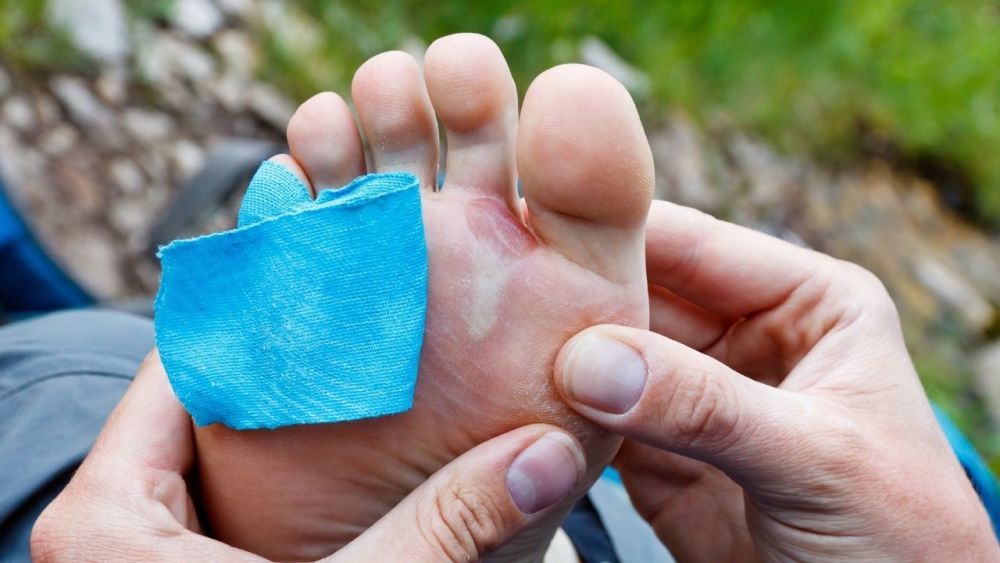
Nutrition and Hydration
A healthy body is a hygienic body.
A balanced diet and sufficient hydration are therefore essential.
And don't forget to pay attention to hygiene here: wash or disinfect your hands before eating or drinking.
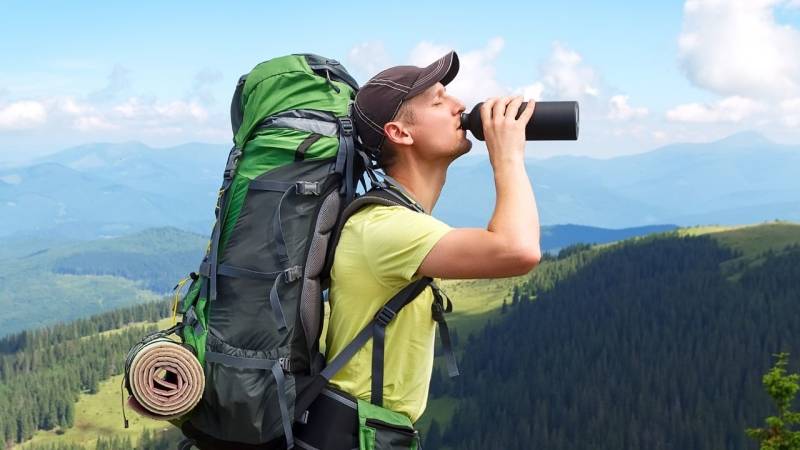
Sleep hygiene
A good night's sleep is important to stay fit in the wilderness. A clean, warm, and dry sleeping place is essential.
A clean sleeping bag, a good pillow - all of this makes the night in the wilderness a restful experience.
Therefore, read: Deep sleep, waking up refreshed - the most important skill of a forest runner
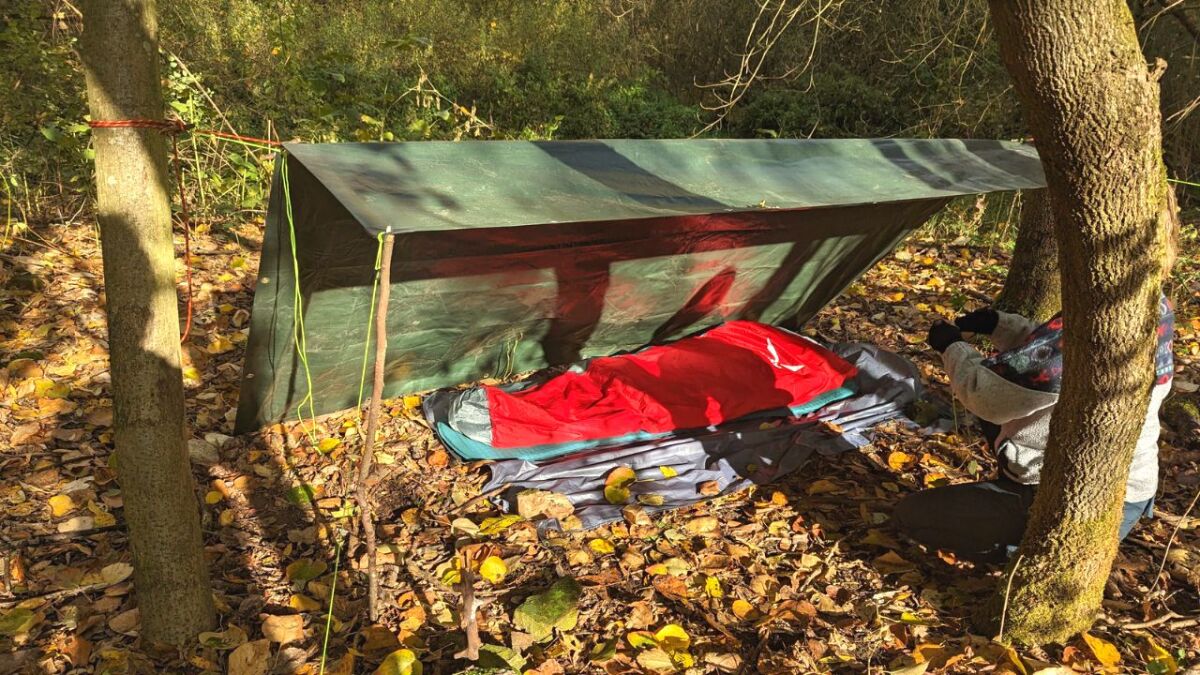
Avoidance and Handling of Waste (Waste Management)
The topic of waste is something that we often forget in our modern world, especially when we venture into the wilderness.
In the forest, there is no garbage collection service and responsible handling of our waste is crucial.
Your trash, your problem - it's that simple.
It is a common misconception that all waste is biodegradable in nature.
Basically, nothing belongs in nature - not even a banana peel. Because a banana peel takes up to 5 years to decompose.
The solution?
Pack it up, take it with you.
Everything you bring into the wilderness, you should also carry out again.
Pack your waste in a way that it cannot fly around or be accidentally left behind. A simple plastic bag can be an effective tool for this.
But not only that.
If you can, minimize the waste you generate in the first place.
Choose products with less packaging and plan your meals carefully to avoid food waste.
And remember, it's not just about keeping nature clean.
A good storage hygiene also helps to keep animals away from your storage.
Bears, raccoons and other animals can be attracted by the smells of your food and waste.
This is not only dangerous for you, but can also lead to unhealthy behavioral changes in the animals.
The wilderness is not a place we visit.
It is our home. Let's treat it with respect and leave it as we found it - or even better.
Dealing with menstruation in the outdoor area
Of course, menstruation presents an additional challenge when you are out and about.
However, with some foresight and planning, it is absolutely doable and should not prevent you from pursuing your love of nature.
On the one hand, having the right equipment is crucial. Whether it's menstrual cups, tampons, or menstrual sponges, all options are portable and practical. Especially cups and sponges are reusable and therefore environmentally friendly as they reduce waste.
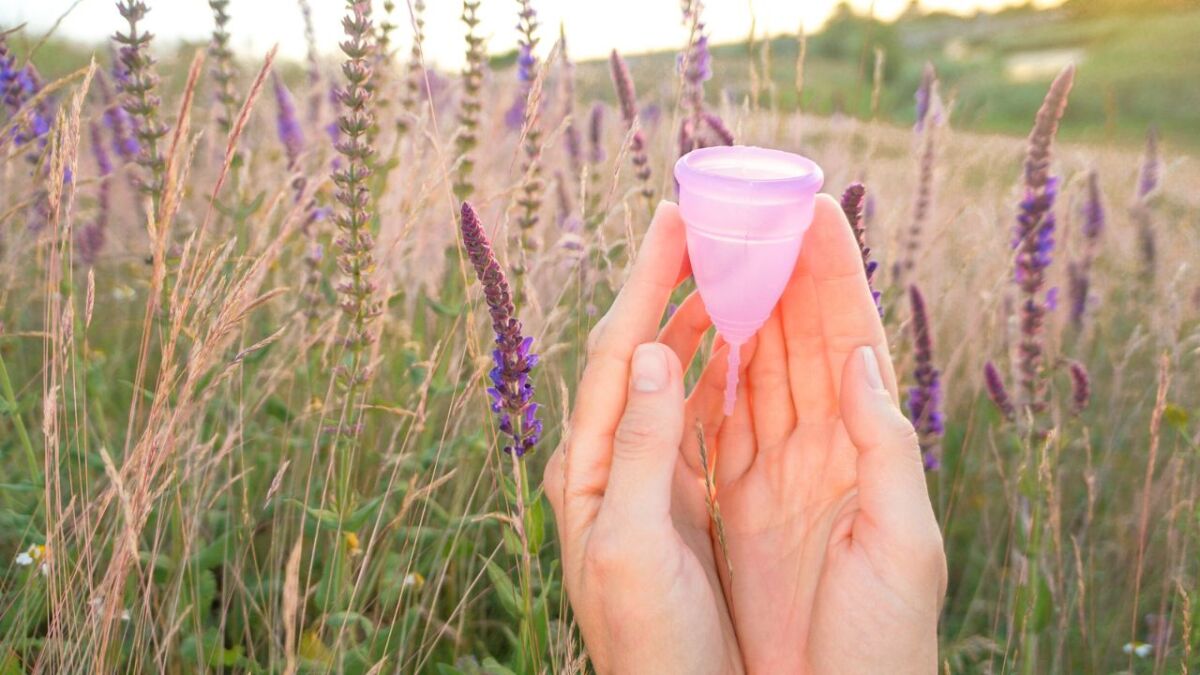
Being always prepared also means having sealable plastic bags ready for used products. "Leave No Trace" applies here as well. Biodegradable wet wipes or a bottle of water and soap can be helpful for necessary cleaning.
If you are looking for an efficient and environmentally friendly alternative, a menstrual cup like the one from Lunette could be interesting for you.
It takes some practice, but some benefits outweigh it. Not only are they gentler on the vaginal flora, but they can also absorb more blood than tampons, making it less necessary to change them frequently.
It would be advisable to get used to using it at home in peace before using it outside. When cleaning, it is sufficient to thoroughly rinse your menstrual cup with water.
Finally, don't be afraid to talk openly about the topic. It's nothing to be ashamed of.
By breaking down the stigma, we encourage (including men) more women to live their love for nature without being limited by their period.
Remember that nature is there for all of us, regardless of our biological cycle.
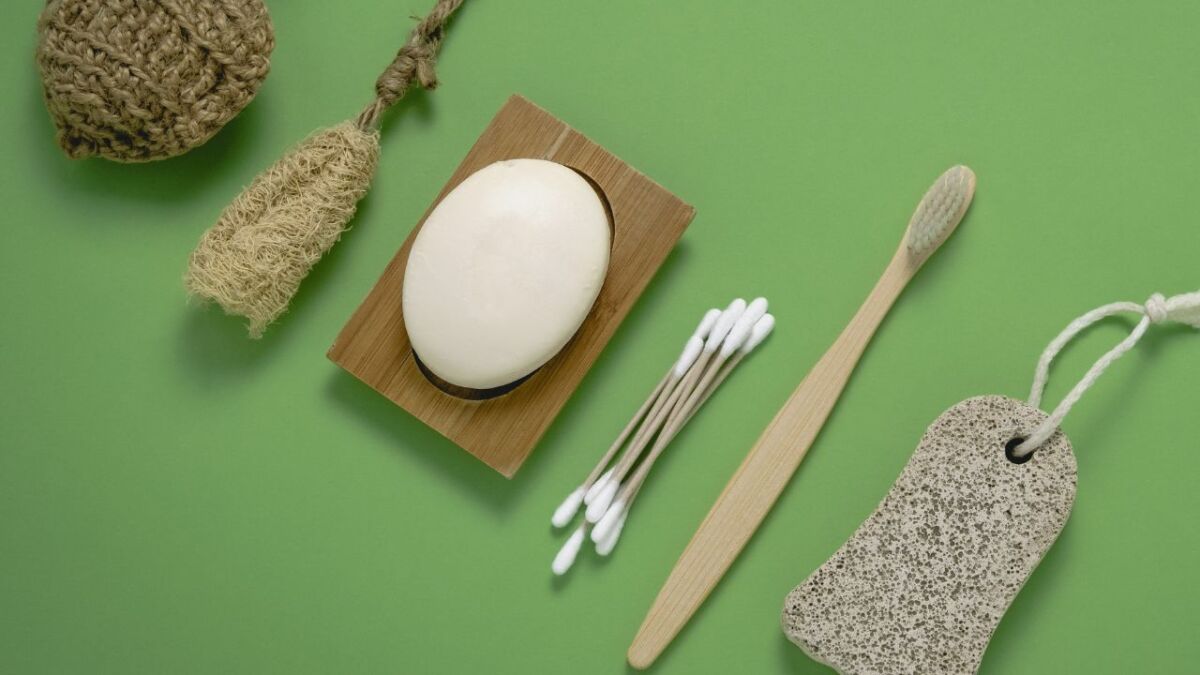
Eye hygiene (e.g., handling of contact lenses)
Eye hygiene is another important aspect of outdoor hygiene, especially for those who wear contact lenses.
If you wear contact lenses, cleanliness is of the utmost importance to avoid infections and irritations.
Here are my tips:
- Make sure to thoroughly clean your hands with clean water and soap before inserting or removing your lenses.
- Pack enough lens solution.
- Store your lenses in a clean container.
It is also a good idea to have a spare pair of glasses with you in case the contact lenses become uncomfortable or lost.
Disposable daily contact lenses could be a suitable option as they require less maintenance and do not require additional cleaning solution.
Considerations for body care in extreme weather (heat, cold, high humidity)
Extreme weather conditions require special attention when it comes to personal hygiene.
Heat
During hot and humid weather, it is significant to prevent excessive sweating as it can contribute to skin problems.
Wear lightweight, breathable clothing and stay in the shade whenever possible. Use an unscented deodorant to control body odor and drink plenty of water to stay well hydrated.
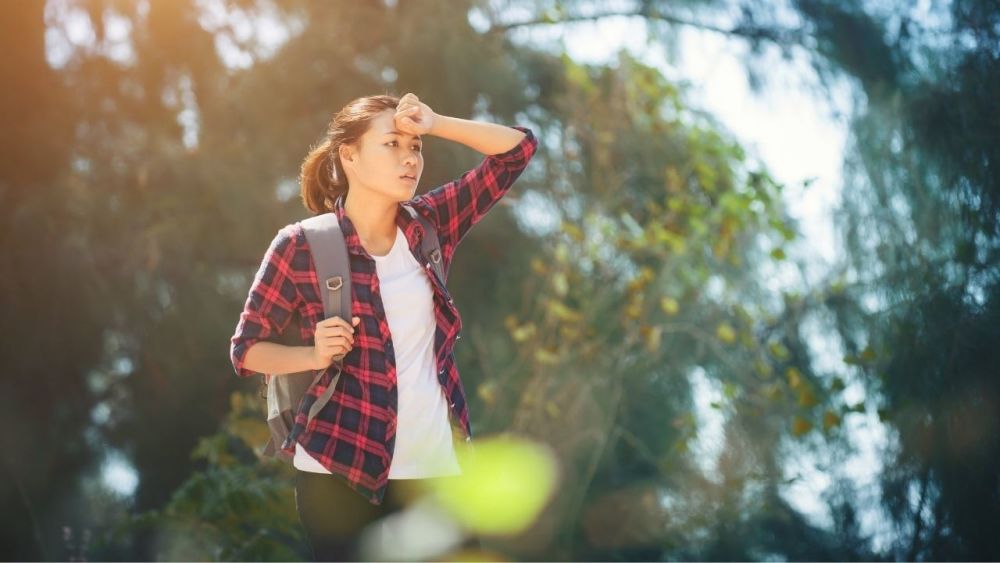
Cold
In the cold, your skin can dry out and become cracked. Make sure to provide it with plenty of moisturizing lotions or a specially made ointment (such as a resin ointment).
Wear multiple layers of clothing to stay warm and make sure that your skin, especially on your hands, feet, and face, is well protected.
During freezing weather, you should have a thermos bottle with warm water with you to warm up from the inside and, if necessary, wash your hands or face.
Remember that hygiene requirements can vary depending on the weather and physical activity, so be flexible and adapt to the circumstances.
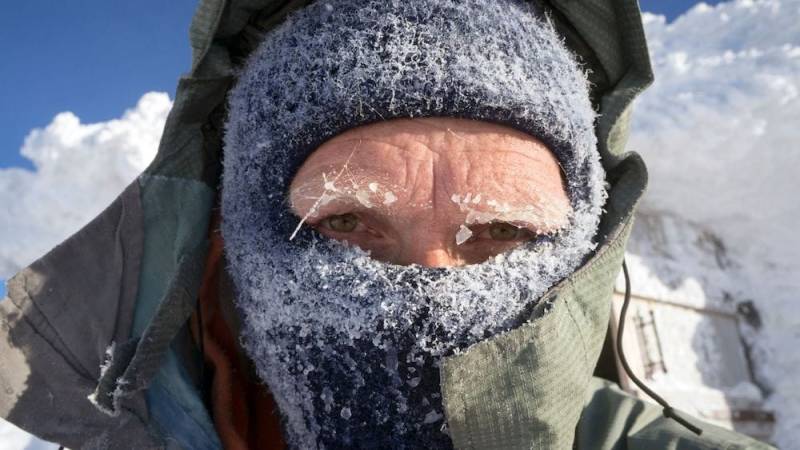
Conclusion
The wilderness is calling, but it requires respect - and part of that respect is taking care of our hygiene.
We have discussed the importance of personal hygiene outdoors, starting from the use of natural water sources and biodegradable soap to the importance of foot care and adequate nutrition.
Not to forget my personal must-have list of outdoor hygiene articles, without which I would never venture into the wilderness.
Now I hope that this guide has given you some helpful tips for your next outdoor adventures.
Never forget: Hygiene is not only important for yourself, but also for the surrounding nature.
If you have any questions or want to know more, do not hesitate to leave a comment.
I always enjoy hearing from like-minded people and sharing their stories. Until next time in the wilderness!


Author of the guide
Martin Gebhardt
Hey, I'm Martin. On my blog, you will learn the basics and numerous details about living in the wild. I think survival, bushcraft and the good life in nature are the keys to happiness. Find me here on Instagram or on YouTube. You can find more about my mission on the About Me page.
Was this guide helpful?
19 people found this guide helpful.
5.00 out of 5 points (19 Ratings)
Comments (0)
This post may contain affiliate links. So if you click on the links and make a purchase, I will receive a small commission at no additional cost to you. Click here, to learn more about it.


